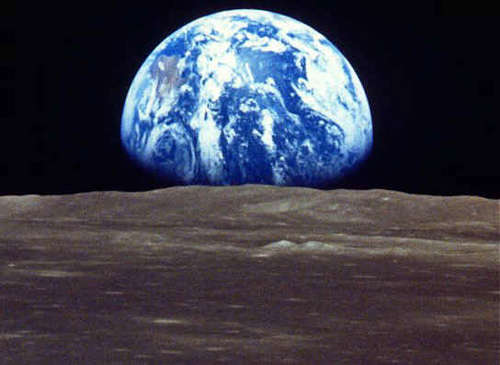 Growing up, we Gen Y’ers ate tie-dyed bread and purple ketchup. We shopped exclusively at Wal-Mart. Gas was cheap, and the economy was good. We never bought organic food; much less, organic clothing. As kids, “things” came in and out of our lives quickly — purchased, used up, and thrown out.
Put simply, our parents’ generation did not collectively ask questions. Like where products came from, how they were made, and what the human and environmental repercussions were.
And so, entrepreneurs in the 90’s had it easy. No one flinched at cheap production in China. Free trade was a hot topic, but fair trade was rarely discussed. America at large was feeding kids, like us, purple ketchup — and making billions from the consumption of poorly-made, unhealthy, and even toxic products.
Fast forward a generation, and Gen Y is a big part of the movement towards more responsible business. The extreme end of the spectrum is asking businesses to produce “cradle to cradle” products — products that are created without harmful toxins and can be recycled into infinity or composted safely. We are, albeit very, very, slowly, moving from simply “green” to a future of zero-waste.
This generation of entrepreneurs will not have it so easy — because this generation of consumers is not turning a blind eye. The evidence is in the products: organic clothing, recycled notebooks, eco-friendly cars, preservative-free foods. Even the most irresponsible companies are trying to clean up their “green” image.
Growing up, we Gen Y’ers ate tie-dyed bread and purple ketchup. We shopped exclusively at Wal-Mart. Gas was cheap, and the economy was good. We never bought organic food; much less, organic clothing. As kids, “things” came in and out of our lives quickly — purchased, used up, and thrown out.
Put simply, our parents’ generation did not collectively ask questions. Like where products came from, how they were made, and what the human and environmental repercussions were.
And so, entrepreneurs in the 90’s had it easy. No one flinched at cheap production in China. Free trade was a hot topic, but fair trade was rarely discussed. America at large was feeding kids, like us, purple ketchup — and making billions from the consumption of poorly-made, unhealthy, and even toxic products.
Fast forward a generation, and Gen Y is a big part of the movement towards more responsible business. The extreme end of the spectrum is asking businesses to produce “cradle to cradle” products — products that are created without harmful toxins and can be recycled into infinity or composted safely. We are, albeit very, very, slowly, moving from simply “green” to a future of zero-waste.
This generation of entrepreneurs will not have it so easy — because this generation of consumers is not turning a blind eye. The evidence is in the products: organic clothing, recycled notebooks, eco-friendly cars, preservative-free foods. Even the most irresponsible companies are trying to clean up their “green” image.
The Challenge for Gen Y Entrepreneurs: Save the World
by / ⠀Personal Branding• Startup Advice / December 23, 2011 Growing up, we Gen Y’ers ate tie-dyed bread and purple ketchup. We shopped exclusively at Wal-Mart. Gas was cheap, and the economy was good. We never bought organic food; much less, organic clothing. As kids, “things” came in and out of our lives quickly — purchased, used up, and thrown out.
Put simply, our parents’ generation did not collectively ask questions. Like where products came from, how they were made, and what the human and environmental repercussions were.
And so, entrepreneurs in the 90’s had it easy. No one flinched at cheap production in China. Free trade was a hot topic, but fair trade was rarely discussed. America at large was feeding kids, like us, purple ketchup — and making billions from the consumption of poorly-made, unhealthy, and even toxic products.
Fast forward a generation, and Gen Y is a big part of the movement towards more responsible business. The extreme end of the spectrum is asking businesses to produce “cradle to cradle” products — products that are created without harmful toxins and can be recycled into infinity or composted safely. We are, albeit very, very, slowly, moving from simply “green” to a future of zero-waste.
This generation of entrepreneurs will not have it so easy — because this generation of consumers is not turning a blind eye. The evidence is in the products: organic clothing, recycled notebooks, eco-friendly cars, preservative-free foods. Even the most irresponsible companies are trying to clean up their “green” image.
Growing up, we Gen Y’ers ate tie-dyed bread and purple ketchup. We shopped exclusively at Wal-Mart. Gas was cheap, and the economy was good. We never bought organic food; much less, organic clothing. As kids, “things” came in and out of our lives quickly — purchased, used up, and thrown out.
Put simply, our parents’ generation did not collectively ask questions. Like where products came from, how they were made, and what the human and environmental repercussions were.
And so, entrepreneurs in the 90’s had it easy. No one flinched at cheap production in China. Free trade was a hot topic, but fair trade was rarely discussed. America at large was feeding kids, like us, purple ketchup — and making billions from the consumption of poorly-made, unhealthy, and even toxic products.
Fast forward a generation, and Gen Y is a big part of the movement towards more responsible business. The extreme end of the spectrum is asking businesses to produce “cradle to cradle” products — products that are created without harmful toxins and can be recycled into infinity or composted safely. We are, albeit very, very, slowly, moving from simply “green” to a future of zero-waste.
This generation of entrepreneurs will not have it so easy — because this generation of consumers is not turning a blind eye. The evidence is in the products: organic clothing, recycled notebooks, eco-friendly cars, preservative-free foods. Even the most irresponsible companies are trying to clean up their “green” image.
Previous Post




